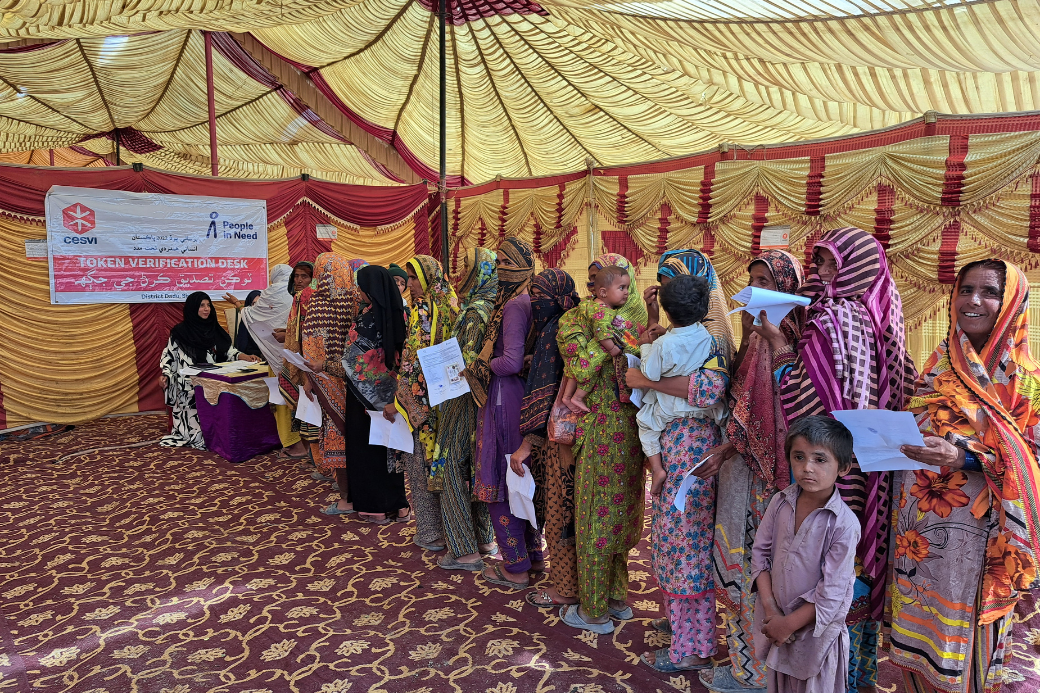The year 2022 was a terrible year for Pakistan marked by the worst flooding in the country’s history, which was one-third submerged by water. A humanitarian catastrophe that well represents the increasingly devastating effects of the climate crisis: since the beginning of summer 2022 torrential rains – up to 5 times more intense than the average of the last 30 years – have hit the Region.
Because of this devastating flooding, 20 million people are in need of humanitarian assistance, and of these about 10 million are children.
Although the situation to date has improved-the water level has decreased and the number of people living at extreme risk due to standing water is about 1.8 million (compared to 4.5 million in January)-the living conditions in rural communities are still very critical: millions of people struggle for survival and against diseases caused by stagnant and contaminated water (such as malaria, dengue, cholera, acute diarrhoea, and typhoid).
CESVI-which has been present in Pakistan since 2005 focusing its intervention on activities to prepare the population to cope with disasters and natural catastrophes-immediately intervened together with its Alliance partner People In Need to support the population, particularly through distributions of emergency kits and hygiene kits to stem the spread of diseases, particularly in Dadu district.
In such an emergency context, the problems related to hygiene practices are many and, in some cases, insurmountable especially for the most vulnerable groups such as girls and women whose dignity must be guaranteed, along with respect for the customs and traditions of the local culture.
Girls and women in the village of Pir Bux Laghari were in fact forced to be accompanied by their mothers or grandmothers in order to wash themselves or to carry out their needs since they did not have adequate products and facilities available and could not be seen by men, or even avoided drinking or eating in order not to have hygienic needs during the day. To remedy these problems, they would go at night to bathe, despite the lack of electricity and with the only help of candles, in a dangerous environment with heavy repercussions on their mental and physical well-being.
PIN’s contribution strengthened CESVI’s BHA-funded interventions through the distribution of mosquito nets, NFIs, and hygiene kits that enabled girls and women to feel protected and safe, even for the most delicate practices. As some of them stated.
“It was very difficult for us to find clean and dry cloths for personal hygiene. At the time of the emergency, we had access to clean, cotton cloths to manage our hygiene”, says Elia, a young woman.
“The soap provided in the hygiene kits is of superior quality and worked effectively to clean my clothes. Now I can finally take care of the cleanliness of my clothes and feel good,” says an elderly woman.
“After installing the toilets and receiving sunlight, I feel so happy. I am not afraid of being seen, I can close the door from the inside without fear of the candle going out, and I feel independent. Being able to go to services by myself gives me a feeling of self-support,” says Zainab, a beneficiary of the project.
Through the project, CESVI and PIN have supported 1,500 families, including women and adolescent girls by providing sunlamps, mosquito nets, and hygiene products including feminine kits.
